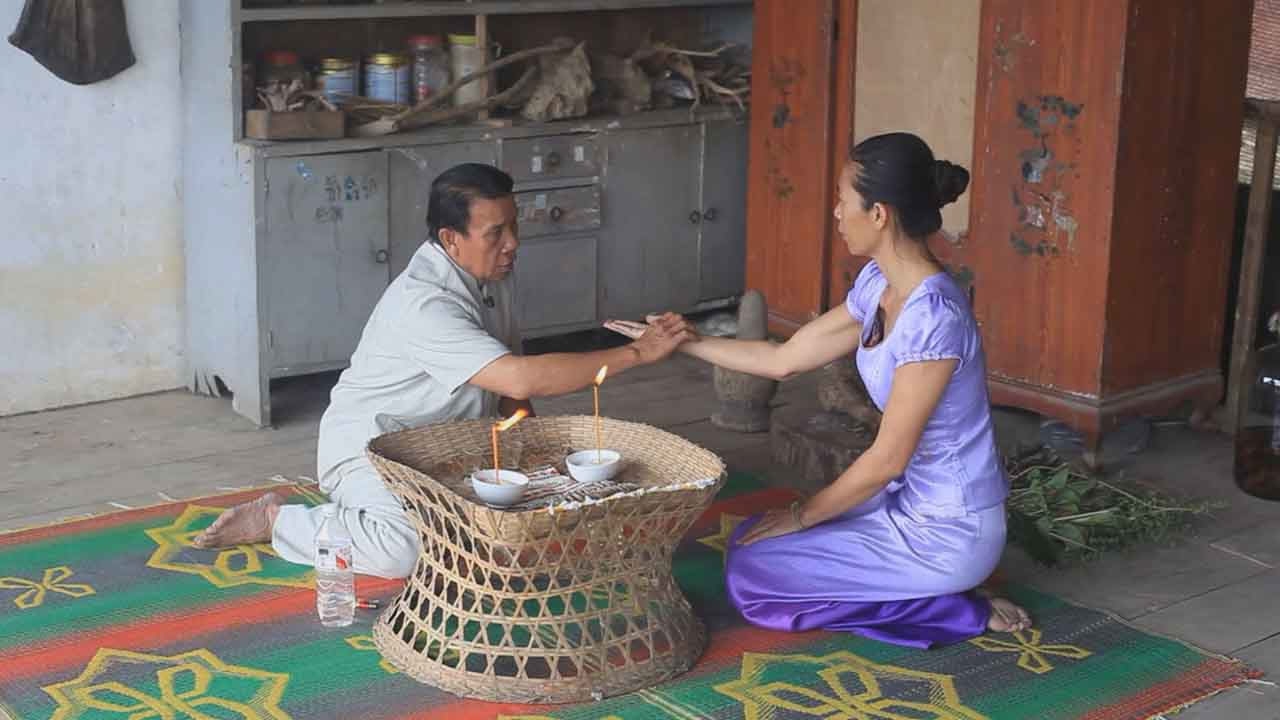By CGTN's Meng Qingsheng, Li Yang & Xu Xiaolong
Traditional Chinese medicine (TCM) has a history of more than 2,500 years, with an expanding influence all around the world. Earlier this month, China's first law on protecting TCM came into force, giving TCM equal status to western medicine.
As an integral part of China's intangible cultural heritage, this ancient medical system comprises of a number of ethnic minority medicine variations, as the country has 56 different ethnic groups.
The Dai ethnic minority group in southwest China's Yunnan Province has its own medical tradition, and is struggling to modernize the age-old practice.
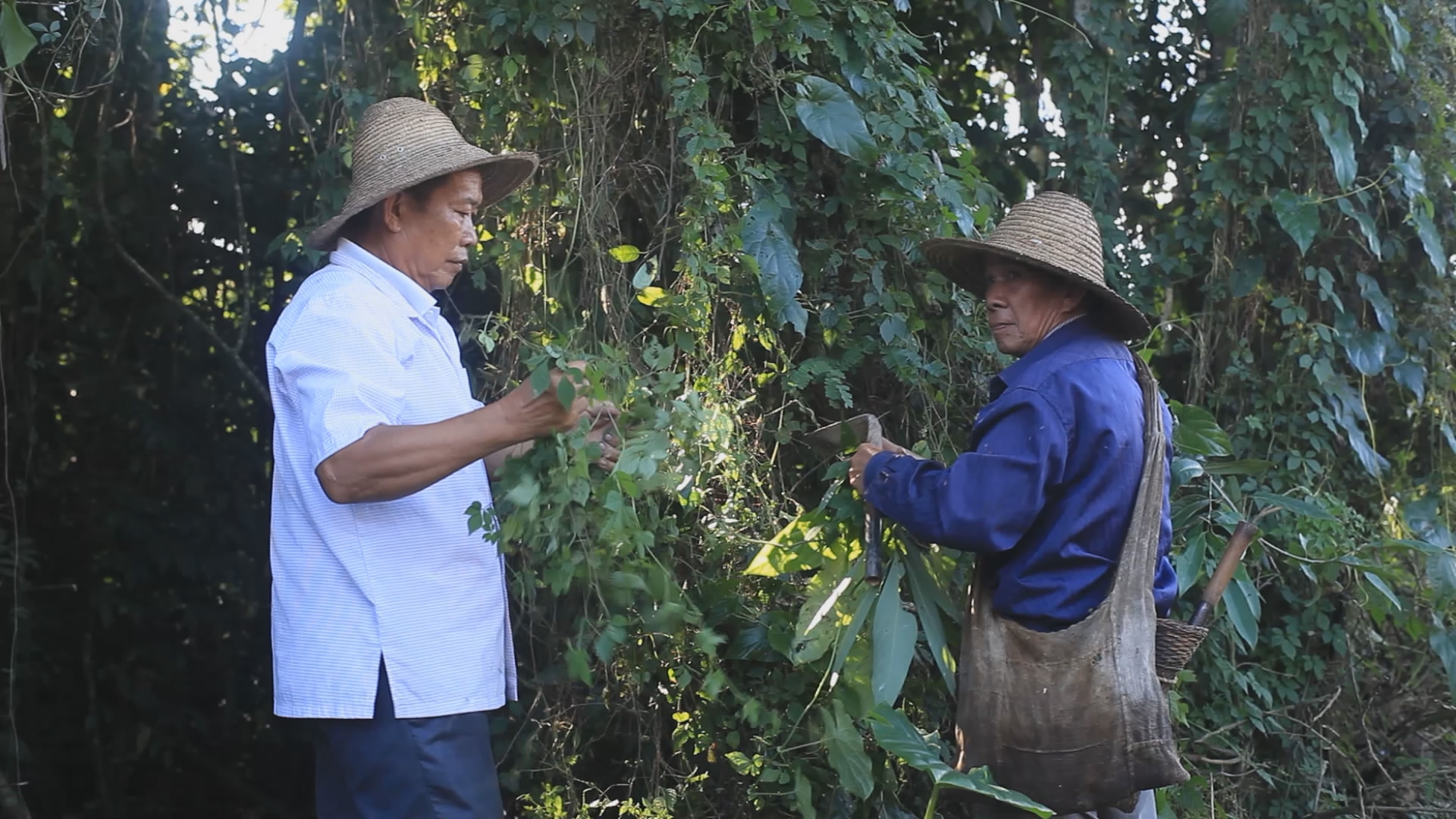
Dai medical practitioners pick up rare herbs and botanicals in villages near Jinghong, Yunnan Province. /CGTN Photo.
Dai medical practitioners pick up rare herbs and botanicals in villages near Jinghong, Yunnan Province. /CGTN Photo.
The Dai people live in the southern part of Yunnan Province, mainly in the Xishuangbanna Dai Autonomous Prefecture, a subtropical area , with plentiful rainfall and fertile land. Dai medicine dates back to 2,500 years ago, and is based on the concept that the human body is made up of four basic elements: wind, fire, water and earth.
According to Dai medicine, illness occurs when the dynamic between these four elements becomes imbalanced. Back in 1983, Chinese government made Dai medicine a key ethnic legacy, and issued policies to boost its popularity.
However, many locals usually look to mainstream Western medicine first when they fall ill. Turning to Dai medicine is always a last option.
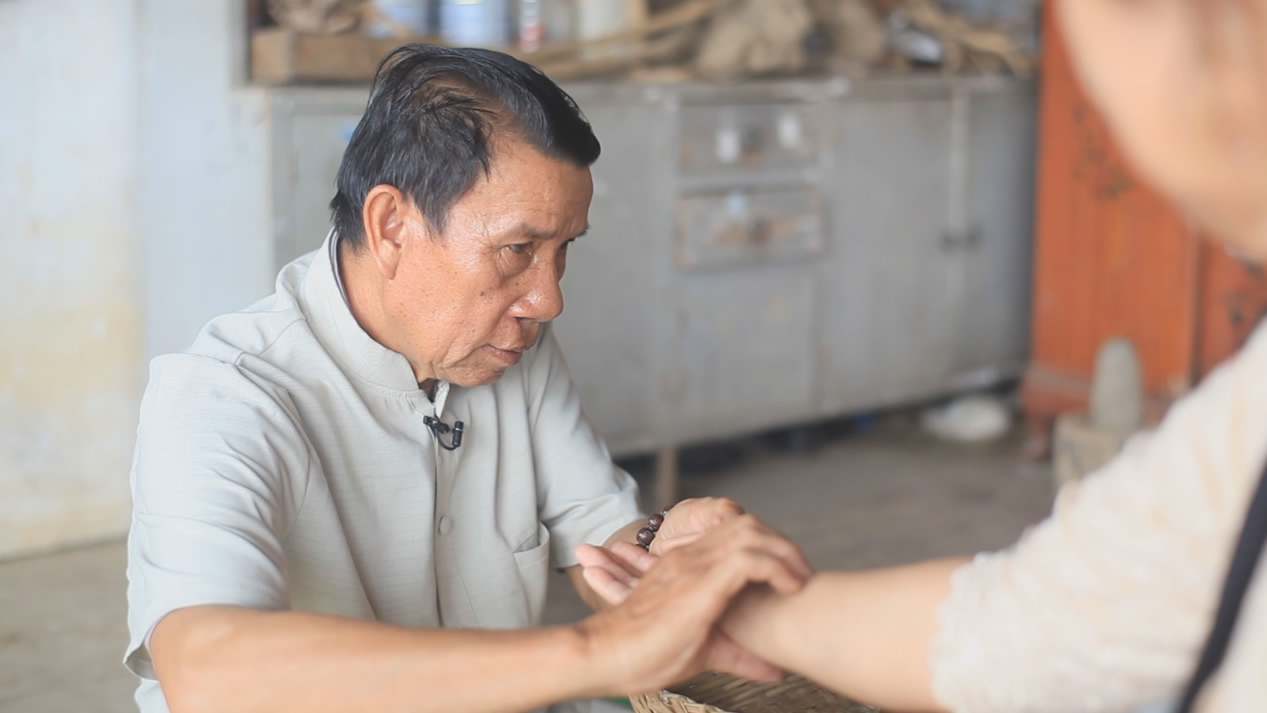
Bo Hanyan has been practicing Dai medical treatments for 25 years. He is now the only ethnic doctor in Manfa, a rural village in Jinghong City, Yunnan Province. /CGTN Photo.
Bo Hanyan has been practicing Dai medical treatments for 25 years. He is now the only ethnic doctor in Manfa, a rural village in Jinghong City, Yunnan Province. /CGTN Photo.
Bo Hanyan as been practicing Dai medicine for 25 years. He remains popular among local residents for treating joint pains and headaches, and most people in nearby villages trust him and believe in the power of Dai ethnic medicine. However, he is worried about the future of Dai medicine, as fewer young people are choosing to carry on the tradition.
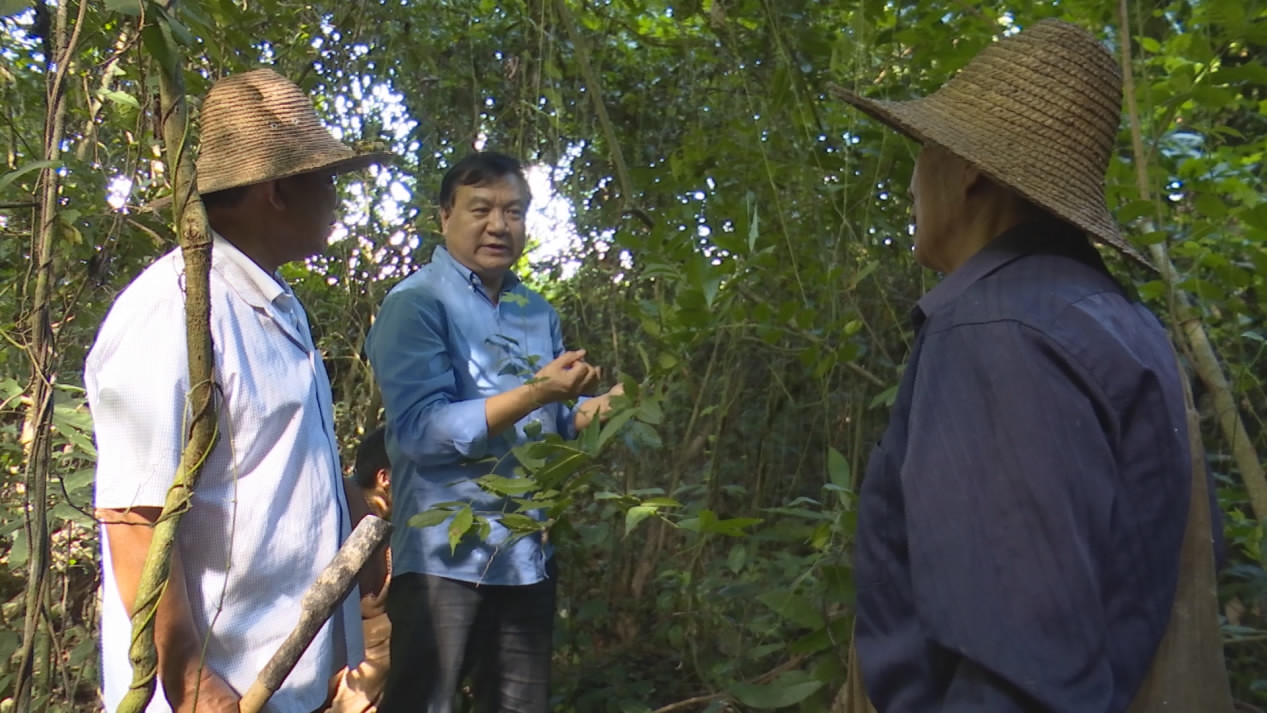
Ai Handan, a popular Dai medical pharmacist, trains local practitioners to select and cultivate natural herds. /CGTN Photo
Ai Handan, a popular Dai medical pharmacist, trains local practitioners to select and cultivate natural herds. /CGTN Photo
Ai Handan works at China's only Dai ethnic hospital, located in Jinghong, in Xishuangbanna. He is responsible for training grass-roots level doctors, like Bo Hanyan. As a veteran practitioner, Ai says traditional Dai medicine employs more than 2,000 types of botanicals, but now, due to increased human activities like rubber and banana plantations, over 300 have become endangered species.
For Ai Handan, the most urgent matter is engaging more qualified young people to inherit the legacy of Dai medicine. For him, they are the ultimate force to bring tradition closer to modern requirements.
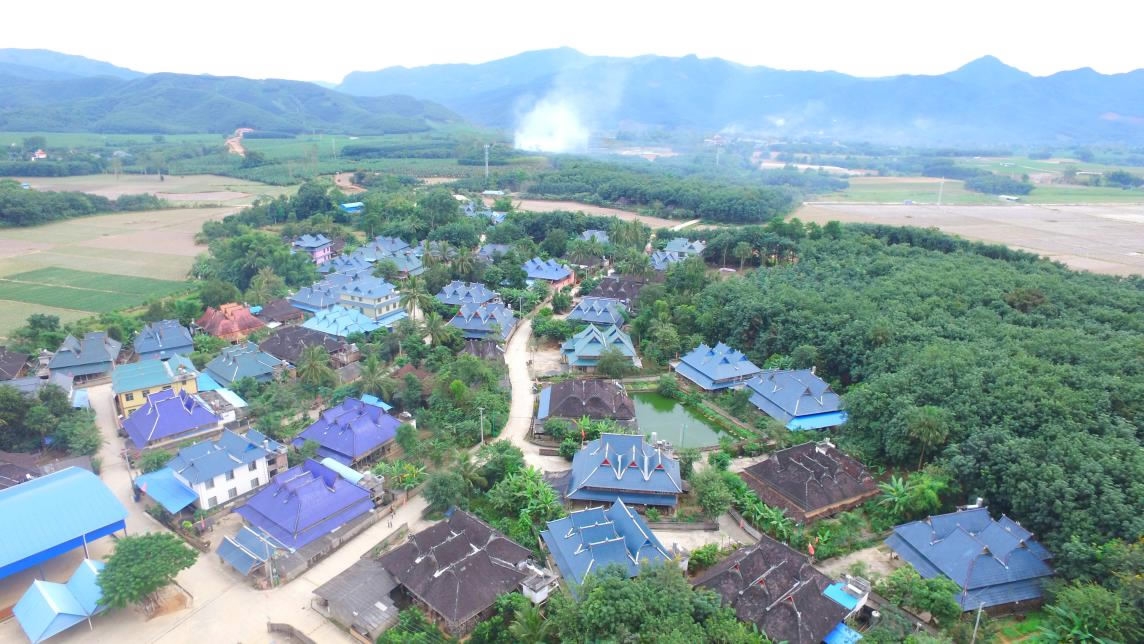
A typical Dai ethnic village in Xishuangbanna, Yunnan Province. Increased human activity has put rare herbs and other Dai medicinal plants in danger. /CGTN Photo
A typical Dai ethnic village in Xishuangbanna, Yunnan Province. Increased human activity has put rare herbs and other Dai medicinal plants in danger. /CGTN Photo
To expand the influence of Dai medicine, local pharmaceutical companies are working to modernize the legacy. Since 2002, the Banna Pharmaceutical, for example, has produced five types of patented medicines.
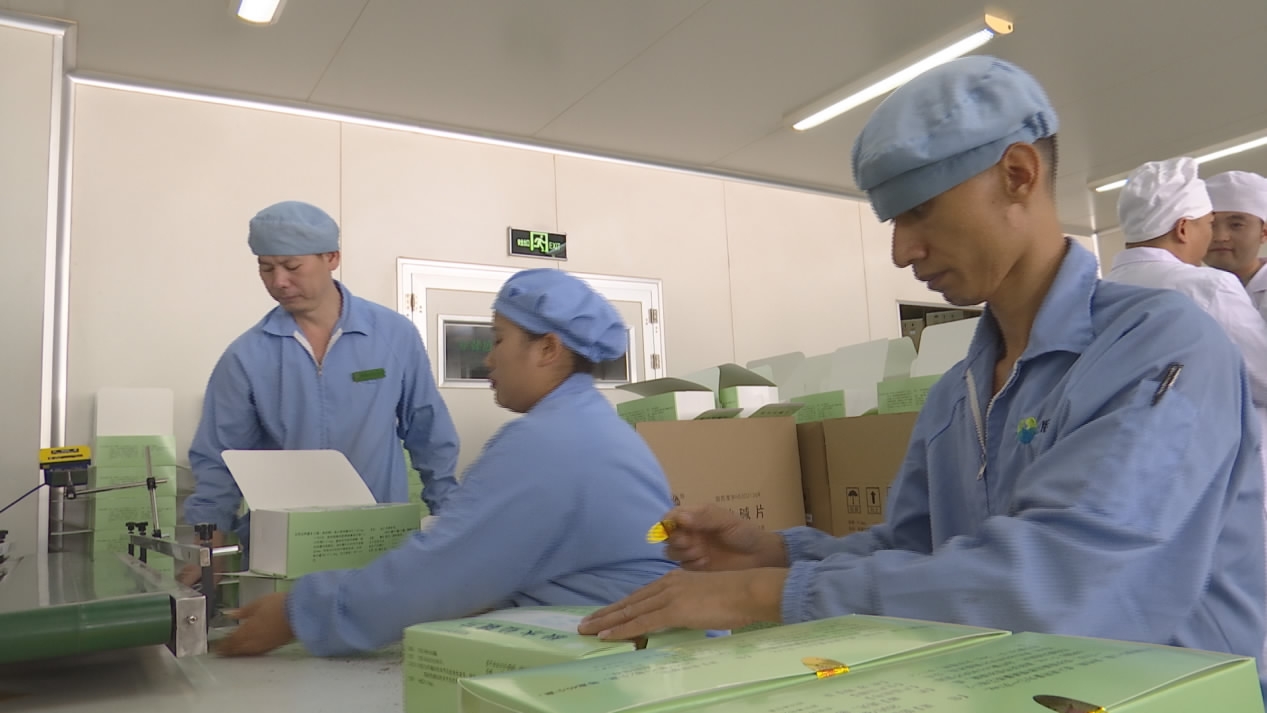
Local pharmaceutical companies are working to modernize Dai ethnic medicine. Banna Pharmaceutical has produced five types of patented medicines and more since 2002. /CGTN Photo
Local pharmaceutical companies are working to modernize Dai ethnic medicine. Banna Pharmaceutical has produced five types of patented medicines and more since 2002. /CGTN Photo
The company's general manager, Wang Jian, says Yunnan has listed Dai medicine as part of its medical insurance system, which means more people can choose it to cure disease. However, considering the complicated application process, it remains difficult for Dai medicine to reach a wider range of people. Wang is calling on authorities to give it a go-ahead to promote its growth.

